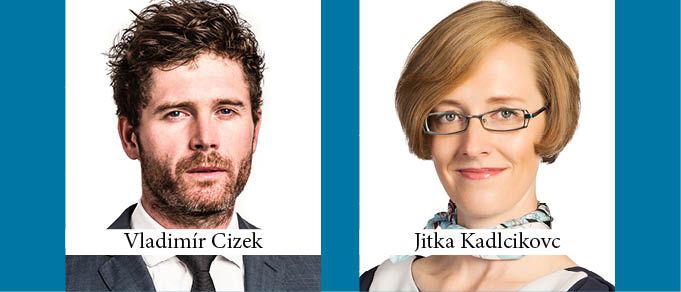The old Czech Commercial Code, which dated from 1991, prescribed that one third of the supervisory board of joint-stock companies with more than 50 employees must be elected by the employees. This originally brief regulation became increasingly complex, and by the time the Commercial Code was repealed thirteen years later it included detailed instructions on the matter.
The regulation was removed from the Czech legal order in 2014, but it was reenacted this year (becoming effective on January 14, 2017) in the amendment (the “Amendment”) of the Business Corporations Act (the BCA).
According to the Amendment, the number of supervisory board (SB) members in joint-stock companies with more than 500 employees must be divisible by three. In those companies, the employees elect a third of the SB members, and may also recall them. Companies with more than 500 employees must amend their statutes and the composition of the SB to comply with this regulation by January 14, 2019.
Except for the usual reservations about employee participation in this form, a definite positive for companies is that the threshold at which the company is obliged to allow employee participation in the SB has been increased.
But the Amendment leaves the solution of numerous issues at the discretion of the joint-stock company in question.
We will highlight at least a few ambiguities and suggest how legal theory has handled them so far.
Joint-Stock Company with One-Tier Board Structure
The BCA has allowed joint-stock companies to choose between a two-tier (board of directors and SB) and a one-tier (sole director and administrative committee) board structure since 2014. The Amendment provides for the employees’ participation in the SB. To this point, everything should be clear. However, the BCA contains a provision which applies the rules regarding the SB to the administrative committee as well. Thus, the question arises if and to what extent the new rules for employee participation would be applicable to companies with a one-tier board structure.
Unfortunately, the commentaries do not give a clear answer to that question.
The Electorate and Elected
The Amendment sets forth that the electorate may consist only of employees in an employment relationship with the company in question. Theory concurs that an employee in an employment relationship is an employee regardless of how long his working time is and that an employee in an employment relationship is not a “contract” employee (i.e. one working on the basis of an agreement to complete a job or an agreement for work).
It appears possible to also elect to the SB a person who is not an employee of the company and, if not excluded by the statutes, a legal person.
500 Employees
The duties imposed by the Amendment apply to companies with 500 or more employees as of January 14, 2017 and as of January 14, 2019. Such companies are required to amend their statutes at their general meetings and enable the employees to elect – probably after adopting the electoral code – one third of the SB members. Since companies usually hold their general meeting in the first half of the calendar year, they should also adopt the decision required by the Amendment, if possible.
Companies with at least 500 employees as of January 14, 2017 but fewer thereafter are likely to avoid the obligation to modify the statutes. Conversely, companies with 500 or more employees at any time after January 14, 2017 are likely to be obliged to amend their statutes at the first general meeting held after the number of employees exceeds 500, and to let the employees elect the new members of the SB immediately after the term of office of one third of current members of the SB expires. We can only speculate about the moment at which the 500 or more employees are counted specifically and how long the company must have fewer or more employees to exclude it from the duty imposed by the Amendment. The words “likely” and “probably” are used intentionally – the Amendment remains silent in this respect and legal theory has yet to adopt an unambiguous stance.
Finally, one can only bemoan the fact that the lawmaker decided to regulate employee participation in companies without reverting to the original wording of the Commercial Code in relation to these challenging issues and other aspects of employee participation, which offered much more far-reaching solutions than the Amendment.
By Vladimír Cizek, Partner, and Jitka Kadlcikovc, Attorney at Law, Schoenherr Czech Republic
This Article was originally published in Issue 4.12 of the CEE Legal Matters Magazine. If you would like to receive a hard copy of the magazine, you can subscribe here.




